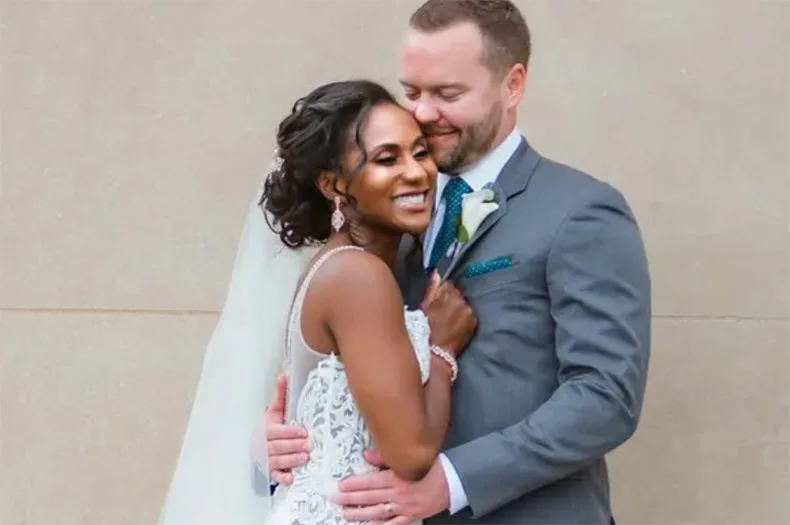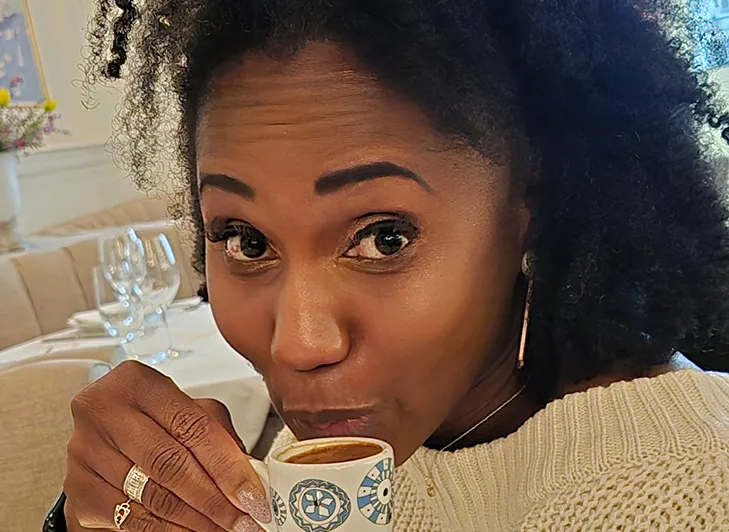The death of a Leawood resident and former Kansas City Chiefs cheerleader has shocked friends and family, and renewed calls for better health care for Black women.
On March 20, Krystal Anderson, 40, died after giving birth to her daughter, Charlotte, who was stillborn, according to Anderson’s obituary.
“She was magic and it is heartbreaking that she has been taken from us this fast, this soon and in this way,” Shanna Adamic, a friend of Anderson’s, wrote in an email to the Post.
Her death serves as a reminder that Black women in the U.S. are nearly three times more likely to die during childbirth than white women in the United States, according to the Centers for Disease Control and Prevention.
Anderson lost two babies during childbirth in her lifetime — a son, named James, and her daughter, Charlotte. She is survived by her husband, Clayton, according to her obituary.
A funeral for Anderson is scheduled for Thursday at 10:30 a.m., at the Leawood campus of Christ Community Church. It can be livestreamed at this link.

Anderson touched people’s lives in many ways
Often referred to as “Krissy” or “Kiki,” Anderson was a Chiefs cheerleader in two separate stints, from 2006 to 2011 and then again from 2013 to 2016.
During her time with the team, she attended the Pro Bowl as the Chiefs representative in 2015, served as a captain of the squad, cheered during the team’s first-ever London game and visited American troops around the world, according to a post by the Chiefs.
“She was loved and adored by her teammates, fans, and strangers who were never strangers for long,” the team said in a post on Instagram.
Off the field, Anderson was known as an advocate for Black women in the STEM fields and also in women’s health.
She worked as a software engineer for Oracle Health and was part of the patent awarded for monitoring risks of post-partum hemorrhage, Adamic said.
She also was a yoga teacher in the Kansas City area.
“Krystal was a light in this world,” Adamic wrote.
Anderson’s death was unexpected
Anderson was hospitalized during her 21st week of pregnancy, according to a GoFundMe created by Adamic and other friends in Anderson’s honor.
During that time, she lost Charlotte and battled sepsis, a condition when the body responds improperly to an infection, causing internal organs to work poorly or to shut down.
She underwent three surgeries before she died, according to the GoFundMe.
“In the early hours of March 20, surrounded by her devoted family, sweet Krissy passed away,” the fundraiser reads.
We are deeply saddened by the recent passing of CC alum Krystal. Krissy cheered with us for over 100 games from 2006-2011 and 2013-2016. pic.twitter.com/tj6sdWx4jo
— Chiefs Cheerleaders (@ChiefsCheer) March 22, 2024
Anderson’s death shines light on health care challenges Black women face
In the week since Anderson’s death, Sharla Smith, founder and director at KU Medical Center’s Kansas Birth Equity Network, said her office has been fielding questions about why tragedies like Anderson’s keep happening.
The center aims to create solutions that improve Black maternal, paternal and infant health in Kansas.
“I hear from Black women all the time that, ‘I dare not have a child, I do not want to die in childbirth,’” she said.
The problem is particularly acute in Kansas. A state-by-state analysis of maternal death rates conducted by the Institute for Health Metrics and Evaluation and Mass General Brigham analyzing data from 1999 to 2019 found that Kansas had consistently higher risk levels for Black mothers than surrounding states.
In Kansas during the years studied, Black women accounted for 14% of pregnancy-related deaths while accounting for only 7% of the state’s population.
Smith sees the problem as needing multiple levels of support, from how Black women are treated and viewed by society to giving them and their families mental health support to needing more Black doctors and nurses.
“When we talk about Black women, we have to talk about the stress that Black women face in everyday life,” she said. “Black women have a higher rate of maternal mortality. And their infants have a higher rate of infant mortality.”
The issue transcends social and economic status, Smith said, meaning even wealthy, educated women who are Black have worse outcomes when it comes to their health and pregnancy than white women of a similar socio-economic status.
Since the Kansas Birth Equity Network’s creation in 2021, it has been engaging with communities in Kansas to make sure they have the resources they need and that conversations are happening to help address these issues, Smith said.
“We don’t have a particular place for us to really focus on Black families together as a nation, like, all of us joined together and all of us come together to work for the greater good of those individuals that really need it at that time,” she said. “So that’s what we’re doing.”
There are ways for people to help
The GoFundme campaign started by Adamic and others for Anderson as of Wednesday evening had raised more than $73,000.
It will benefit the family, as well as causes that were important to her.
Organized before news of Anderson’s death, the Kansas Birth Equity Network also is hosting an upcoming free event called “Centering Black Mental Health: A Conversation on Mental Health & Parenting.” That is scheduled for Saturday, April 13, at 10 a.m. at the KCKCC Technical Center at 6565 State Ave., in Kansas City, Kansas.
Child care and lunch will be provided free of charge at the event, and all are welcome.

Friends, family want to see Anderson’s legacy live on
Following Anderson’s death, numerous tributes to her were posted on social media.
The theme: her kindness, warm smile and loving nature will always be remembered.
“My beautiful friend, my fearless captain, our forever role model — I can promise that you’ll never be forgotten,” Claire Murphy Sewell, a fellow former Chiefs cheerleader wrote in a post on Facebook. “Because the only thing that could ever be more profound than your presence, will be your absence.”


